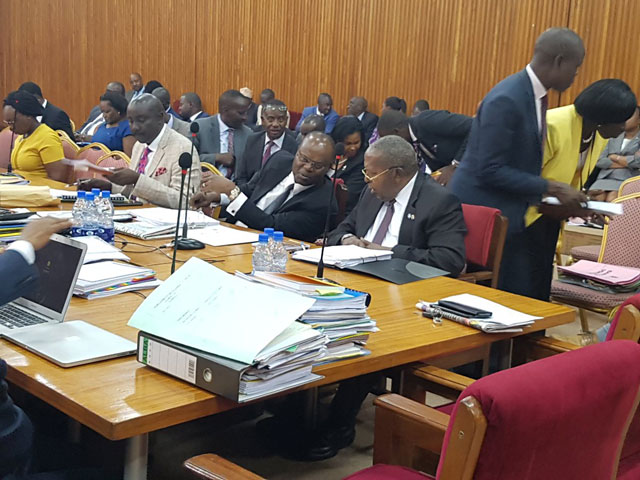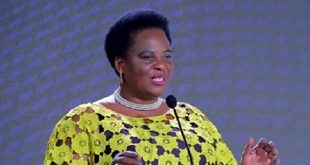
MUTEBILE: What happens next?
Kampala, Uganda | HAGGAI MATSIKO | Anxiety is building about what the future holds for management of Uganda’s economy as the curtain slowly comes down on three prominent figures; Bank of Uganda Governor Tumusiime Mutebile, his deputy Louis Kasekende at Bank of Uganda, Secretary to the Treasury Keith Muhakanizi
For years now, navigating Uganda out of intricate political-economic situations has always been the handiwork of these technocrats. Mutebile, especially, has been at the forefront of managing Uganda’s economy since the early 80s.
He was the Chief Economist in the Ministry of Planning before President Yoweri Museveni came to power and rose to become Permanent Secretary and Secretary to the Treasury Ministry of Finance, and finally longest serving central bank governor.
His deputy, Kasekende, is a traditional central banker having joined BoU in 1986 and rose through the ranks with a short stint at the World Bank as executive director and the African Development Bank as chief economist. He has been DG, first from 1999 to 2002 and then from 2009 to present.
Muhakanizi is a long-serving Ministry of Finance technocrat who honed his skills as Deputy to the late legendary Permanent Secretary Chris Kassami. When Kassami retired in 2013, Muhakanizi succeeded him.
Having been at either Finance and Planning since 1982, Muhakanizi has over the years mastered the inner workings and built a network of technocrats across the board given that the Finance Ministry is the centrepiece of the entire government. Over the years, he has also mastered the politics.
The departure of these officials over the coming years is likely to mark a dramatic shift as it is accompanied by the departure of other technical staff; either through natural retirement, early voluntary departures, or shuffles resulting from recent controversies.
The Deputy Secretary to the Treasury, Patrick Ocailap, also looks set to retire from the Finance Ministry while the future of Kasekende; who was once viewed as a natural successor to Mutebile at BoU, is uncertain.
Mutebile and Kasekende have increasingly come under pressure to leave BoU owing to the countless scandals at the central bank, especially concerning their role in the shabby closure of commercial banks.
While President Museveni has not pressed the exit button for these officials, the contract of 70-year old Mutebile ends in early 2021. That of 60-year old Kasekende ends earlier in 2020. Some of President Museveni’s handlers have told The Independent that both are out of a job.
At the Finance Ministry, Muhakanizi might quit the ministry soon. He has not been in good health. And the contract of his deputy, Ocailap expires early this year.

Strong leaders important
While there are formidable technocrats at Ministry of Finance at Director level, there is anxiety that the inevitable changes are forced rather than planned moves.
Succession at Finance became a toss-up after Lawrence Kiiza, the former Director Economic Affairs, who was seen as Muhakanizi’s potential successor, retired early in 2017.
Muhakanizi has been tipped by some to be the next governor of BoU, although this or his stay at Finance will likely depend on his return to full health.
Also Ocailap who for a long time appeared set to succeed Muhakanizi has hit the civil service retirement age of 60 years.
Many observers fear that the Uganda economy is entering uncertainty amidst tough times in the political economy sphere.
Strong leaders like Mutebile and Muhakanizi were central to the strong performance of the Ugandan economy up until the late 2000s, according to research by scholars such as Sam Hickey, a Professor of Politics and Development at the University of Manchester has done research on politics and development in Uganda since 2002.
In the case of the Finance Ministry, he found that strong leaders like Mutebile and Muhakanizi were central to the good performance here.
Therefore, Hickey told The Independent that the anxiety about the pending departure of these officials is well placed.
“These figures have been in situ for a long time and I don’t get the sense that they have planned for succession in any institutionalised form,” Hickey told The Independent.
Indeed, some observers cite the example of the energy sector to demonstrate the challenge of such lack of succession. Since the 1980s, the energy sector was under the stewardship of Kabagambe Kalisa. Then in 2017 following a fall out with President Museveni over the mismanagement of Karuma and Isimba dams, President Museveni fired him and replaced him with Stephen Isabalijja.
Isabalija, who had only served on the fringes of the Energy sector as the Chairman Board of Directors for power generator UEGCL and was new to mainstream government, was unable to hold fort as new Permanent Secretary and was fired in less than a year. President Museveni then appointed a relatively young man, Robert Kasande to head the sector.
Both MEMD (Energy Ministry) and PEPD (Petroleum Exploration and Production Directorate), observers say, had well-established plans of career-progression and leadership succession in place that fitted well with the expertise, stature and experience of the staff involved.
The sacking of Kabagambe and appointment of Isabalija, they add, might have disrupted this.
Hickey and Badru Bukenya; a researcher at Makerere University Kampala, have evaluated the performance of the Finance Ministry since the reforms it undertook in the early 1990s and are working on another paper about the performance of BoU over the same period of time. They work under a global research centre; Effective States and Inclusive Development (ESID) that investigates politics that promote development.
The researchers chose to study BoU and Ministry of Finance partly because preliminary research showed the two institutions as top performers amongst government institutions. Their research is aimed at learning what makes them key performers. Some look at their recommendations in terms of how to improve or replicate good performance based on lessons here.
 The Independent Uganda: You get the Truth we Pay the Price
The Independent Uganda: You get the Truth we Pay the Price



How long should does one have to be a Governor of the Central Bank ?
Does Uganda have a policy on that one?
Old usually comes with experience, but we should not disdain from the fact the our economy has progressed and transformed over the years. Entrusting it in the hands of younger economists is some thing of a gamble but one that could eventually pay off.